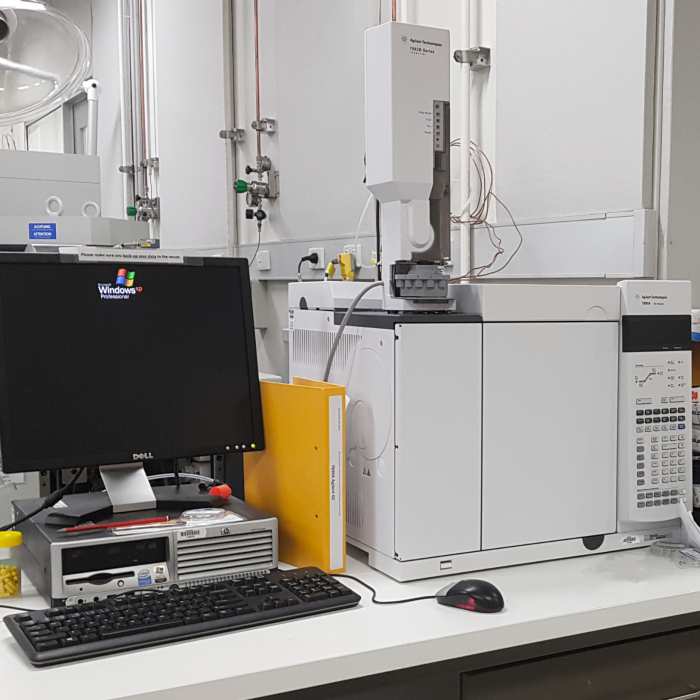Agilent 7890 GC

Description
The Agilent 7890 is one of the high-performance gas chromatographs that provide superior performance for all applications by the use of advanced EPC (electronic pneumatic control) modules and high-performance GC oven temperature control. These specifications provide optimal chromatography including peak symmetry, repeatability of retention time and accuracy in retention time index.
The Agilent 7890A is equipped with FID (flame ionization detector) and TCD (thermal conductivity detector) detectors. FIDs are very sensitive to hydrocarbons and other easily flammable compounds but insensitive to H2O, CO2, CS2, SO2, CO, NOx, and noble gases because they are not able to be oxidized/ionized by the flame.
The TCD works based on any changes in the thermal conductivity of the column effluent and compares it to a reference flow of carrier gas. All organic and inorganic compounds and permanent gases (argon, oxygen, nitrogen and carbon dioxide) can be detected by this detector.
Specifications
-
- Oven Temperature Range: Ambient +4°C to 450°C
- Electronic Pneumatics Control (EPC): Pressure setpoint precision to 0.001 psi
- Retention Time Repeatability: < 0.008% or < 0.0008 min
-
- Thermal Conductivity Detector (TCD)
- Flame Ionisation Detector (FID)
Applications
- Hydrocarbon analysis and detection
- Organic and inorganic compound analysis
- Detection of permanent gases
Instrument location
Bioanalytical Mass Spectrometry Facility
Room B50, Basement Floor
June Griffith Building (F10)
UNSW Sydney, NSW 2033
Phone: 02 9385 1717
Email: bmsf@unsw.edu.au
Dr Martin Bucknall
-
Phone
02 9385 4707 -
Email
m.bucknall@unsw.edu.au
Mr Lewis Adler
-
Phone
02 9385 7739 -
Email
l.adler@unsw.edu.au
Parent facility
Explore more instruments, facilities & services
Our infrastructure and expertise are accessible to UNSW students and staff, external researchers, government, and industry.



